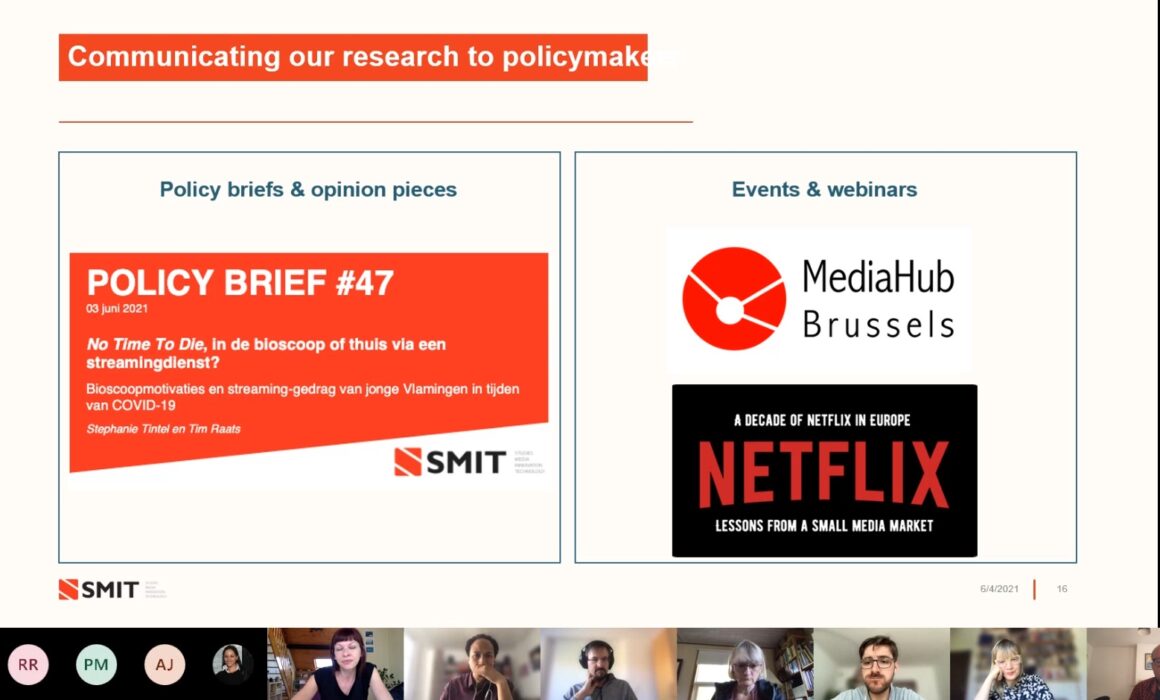How far can you go to interest policymakers in your research?
Post written by: Heritiana Ranaivoson
On June 4, the 3rd ScreenME-Net online workshop took place, organized by imec-SMIT (Vrije Universiteit Brussel), and open to all project partners. The objective was to identify common research priorities and methods. An emphasis was put on how such research priorities and methods can inform policy-makers. In such endeavor, we could benefit from the outcomes of the two previous workshops organized respectively by LUT School of Business and Management and Jönköping International Business School, and by Aarhus University; and from the outcomes of the VUB Symposium on Netflix’s development and current positioning in the EU organized on June 3.
In the morning, we in particular discussed how to, and to what extent, involve policy-makers in research. Such involvement can take different shapes, from them commissioning studies to them contributing data to the research process (notably via interviews and focus groups). Researchers can also be more directly committed in policy processes, by belonging to boards, or by writing policy documents (rather than the reports that may feed in these documents). In any case, any involvement raises issues in terms of whether it leads to compromises, or regarding the researcher’s reputation. Besides, policy-makers can even be more difficult to collaborate with than representatives of media industries because the latter usually come with clear objectives.
Following these fruitful exchanges around our personal experiences, the afternoon was devoted to identifying and discussing interesting EU calls, with the view of getting some concrete leads for future collaborative research projects, This was again based on a first identification of funding opportunities made by colleagues from Tallinn University and Aarhus University. We hope we can report in the coming months about how this has led us to submit some EU project proposals.


